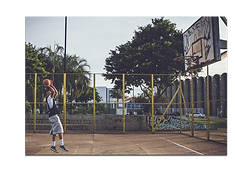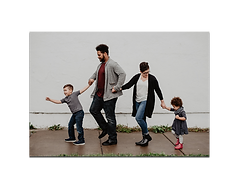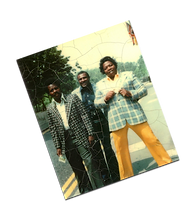

An individual facing prison is much more than their greatest mistake.
FACT SHEET
-
Every judge who has viewed a Complete Picture video has reconsidered the default of prison, weighing other options to offer a better outcome for everyone.
-
57% of our clients received no prison time or a suspended sentence in lieu of prison time.
-
Complete Picture's first 14 videos alone were instrumental in reducing sentences by an aggregate of over 79 years of prison time for the14 defendants and helped save taxpayers more than $6 1/2 million in incarceration costs.
-
In all cases, the respective defense attorneys attributed the judge’s change of heart to the information presented in their videos.
-
By averting the human costs of incarceration, Complete Picture's videos also help minimize collateral damage such as children being sent to foster homes and elderly parents to care facilities.
-
Complete Picture’s sentencing videos emphasize if the person is ready to engage in mental health care, drug rehab, or job training that can enable their return as a productive member of society.
THE NEED FOR CHANGE IS NOW
The following graphs depict outcomes when a Complete Picture sentencing video was used to give the court more information prior to sentencing.

COMPLETE PICTURE BENEFITS THE LIVES OF COUNTLESS MEN & WOMEN WHO ARE FACING
YEARS OF INCARCERATION

-
American Psychological Association featured an article called "Incarceration Nation" stating that the United States is home to almost 5% of the world’s population and 25% of its prisoners.
-
One could mistakingly point to the increased privatization of prisons as a key motivator for mass incarceration, but it’s not that simple. Actually, according to Mass Incarceration: The Whole Pie 2025, published by the Prison Policy Initiative, over 92% of U.S. prison inmates are incarcerated in publicly-run, publicly-funded facilities.
-
In far too many cases, stiff sentences, disproportionate to the crimes committed, are propagated by a broken system that does not provide due process or proper representation to those who cannot afford to hire an attorney and must have a court-appointed public defender.
-
In his book "Privilege and Punishment", Sociologist and Stanford professor Matthew Clair describes how disadvantaged persons, predisposed to distrust the legal system, often attempt to advocate for themselves. A contentious client-attorney relationship ensues. Eventually, the defendant resists representation or completely withdraws from the attorney. The withdrawal further deepens their disadvantaged position.
-
A 2022 National Institute of Justice report reveals that 95% of people incarcerated in state prisons eventually return to their communities. Having been traumatized by the brutal environment experienced in jail and prison, individuals are much more likely to re-offend.
-
A study by The Sentencing Project found that “Overall, African Americans are more likely than white Americans to be arrested; once arrested, they are more likely to be convicted; and once convicted, they are more likely to face stiff sentences.”
-
A passage in Bryan Stevenson’s book “Just Mercy” brings to light that there are more than 3x more seriously mentally ill patients in jails or prison than in hospitals.
-
Though prisons are the default "solution," even for lower crimes, they are totally ineffective at rehabilitation, particularly for people suffering from substance use disorder or mental illness.














































